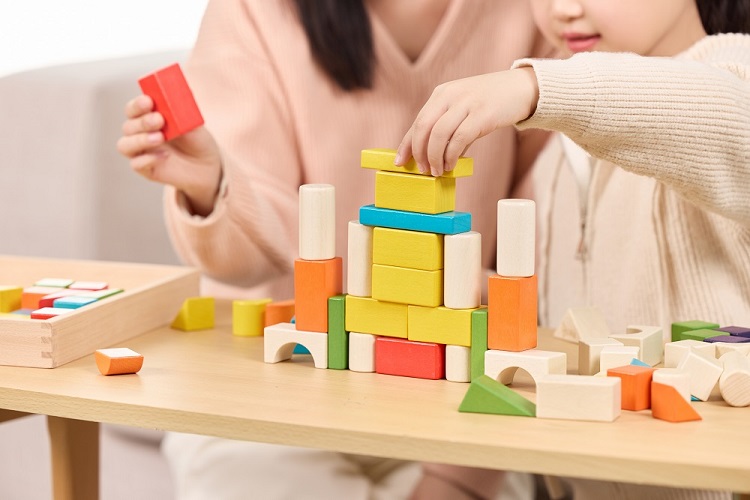News& Information
-
Medical Trends
 Home -> News& Information -> Medical Trends
Home -> News& Information -> Medical Trends
Parents Easy Guide for Children Assessment (Part I)
Before any assessment, you probably have a lot of questions. You might be wondering if your child really has difficulties with things like attention, learning, emotions, or behavior. You might also want to know if these challenges could besigns of something like autism, ADHD, or other conditions that affect how your child thinks or acts.

This two-part Beginner’s Guide is here to help. It will answer many of your questions about assessments for children. We want you to feel confident and informed as you support your child in getting the support they need.
What is a Psychological Assessment?
A psychological assessment is like taking an x-ray, but instead of bones, it looks at a child's or adult’s learning abilities, attention span, personality traits, and challenges. It helps uncover why some children find it hard to keep up at school or why they struggle with emotions and behaviors.
Why Are Children Referred for an Assessment?
There are many reasons why a child might need a psychological assessment:
• Learning Difficulties: Some children struggle with reading, writing, math, or have dyslexia. This can include trouble reading at grade level, spelling, or sounding out new words.
• Learning Level: The assessment checks if a child’s learning matches their age or grade level. Are they ahead, behind, or just right for their age?
• Emotional or Behavioral Challenges: The assessment can identify personality traits that may contribute to emotional or behavioral difficulties. This could include anxiety, sadness, anger, low self-confidence, or trouble getting along with classmates.
• ADHD:Children with ADHD may have problems with focus, hyperactivity, or impulse control, which can affect their schoolwork and behavior.
• Autism:Some children have forms of autism, such as Asperger’s, which may affect their social skills, self-management and learning.
• Emotional Struggles: Challenges like depression, anxiety, poor self-confidence, and even physical habits like nail-biting or bed-wetting can be assessed.
What is a Psychoeducational Assessment?
A psychoeducational assessment focuses more on understanding a child’s learning abilities. It looks at areas like:
•How well they read, write, and do math
•Their problem-solving skills (cognition)
•How they plan and organize tasks (executive function)
This type of assessment helps teachers and parents understand what a child needs to succeed in school. It can show if the child needs extra help, tutoring, or learning strategies to catch up or stay on track with their studies.
What is Social Emotional Assessment?

Parenting and personality traits all have role in children personality and social emotional development. From a young age, children learn to navigate their world by interacting with peers, sharing experiences and developing friendships. These early interactions lay the foundation for their social and emotional growth. As they progress through school, children encounter new challenges that require more advanced social and emotional skills.
Without these skills, children may struggle to cope with their own unique stressors, which can lead to issues like anxiety, depression, and even physical health problems in adulthood. By equipping children with Social Emotional skills at an early age children can get help through psychological strategies to build a strong emotional foundation that promotes mental well-being, academic success, and healthy relationship with their classmates and others .
Why is the Assessment Important?
The goal is to find out what’s getting in the way of your child’s success and happiness. Once the reasons are clear, experts can suggest strategies and interventions to support your child’s learning and emotional well-being.

Remember, a psychoeducational assessment should be done every few years to track your child’s cognitive and learning development. As they grow, their learning needs and abilities may change!
What kind of tests will my child take, and what are the steps?
Prior to assessment session, parents and student are interviewed to obtain students developmental and mothers health history during pregnancy and family health. Later, with parents’ permission, psychologist will contact the school teacher or counselor who referred the students to obtain detail information of students difficulty at school.

The tests used in assessments are usually paper and pencil tasks or activities on a different devices. Your child will solve problems or answer questions using these tools.
Depending on your child’s needs, the assessments may take between two to four hours. A more detailed test, like a psychoeducational assessment, can take about 4 hours. During the assessment children can get tired or lose focus, so tests are sometimes spread over two or three sessions. This ensures your child is well-rested and can perform their best.
We offer assessments provided by a highly trained child psychologist who graduated with masters and Ph.D. degrees from the USA. With years of experience, our psychologist uses the most relevant and customized tests to assess each child’s specific needs. The result is a detailed report with clear recommendations, helping parents and teachers understand a child’s learning challenges and how to support their growth better.
Here’s how our assessments help:
• Clarity for Teachers and Parents: We help parents and teachers understand the problem clearly and identify any other issues that may affect learning, so that students can improve as quickly as possible.
• Effective Treatment: Our psychologist uses the assessment results to create targeted methods that support your child’s faster recovery from their learning challenges.




